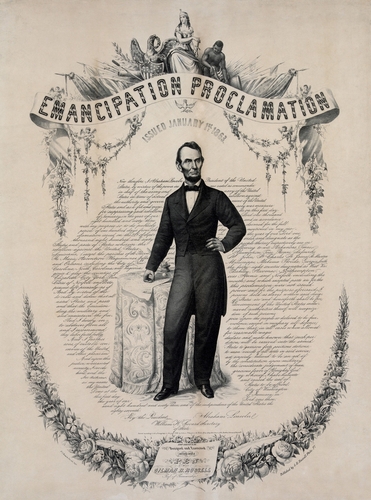
Many think the Civil War was fought over the issue of slavery, but this is not true. Even a year into the war, the North was not fighting to eliminate slavery. Many felt it was evil, but they were not willing to free the slaves entirely. The border states were Union states that still allowed slavery. In fact, they did not want to end slavery.
Since Northern states were mainly free states and Southern states mostly were slave states, there were "border states" that sat geographically and politically between the two sides. One such state, Maryland, allowed slavery to continue but did not secede. At least at the beginning of the war, fighting in these states was particularly intense.
When the Civil War started, African-Americans were allowed to join the U.S. Navy but not the Army. This restriction was lifted during the second year of the war, though. Union Colonel Robert Shaw and the 54th Massachusetts infantry, consisting entirely of African American soldiers, led a Union assault on Fort Wagner, South Carolina. Almost 300 of Shaw's troops were killed, including Shaw himself, and the South claimed a victory at the end of the day. Still, their courage, bravery, and skill marked a severe blow to the Southern belief that African-Americans belonged to an inferior race.
When Lincoln put forth the idea of issuing a proclamation ending slavery, he was advised against it. He was told he would lose all of his support and should at least wait until the North achieved a significant military victory.
With the victory at Antietam, the North had its victory, and the North was able to convince the British that the South might lose. The British then refused to acknowledge the Confederate states. On January 1, 1863, Lincoln signed the Emancipation Proclamation, freeing slaves in the South.
